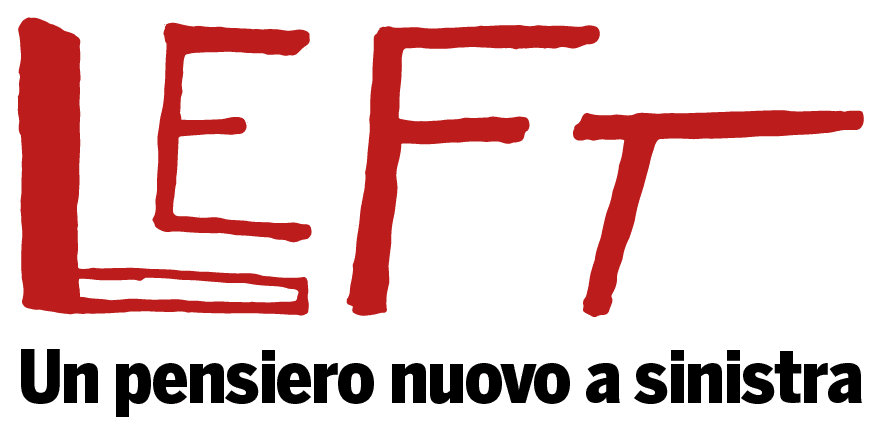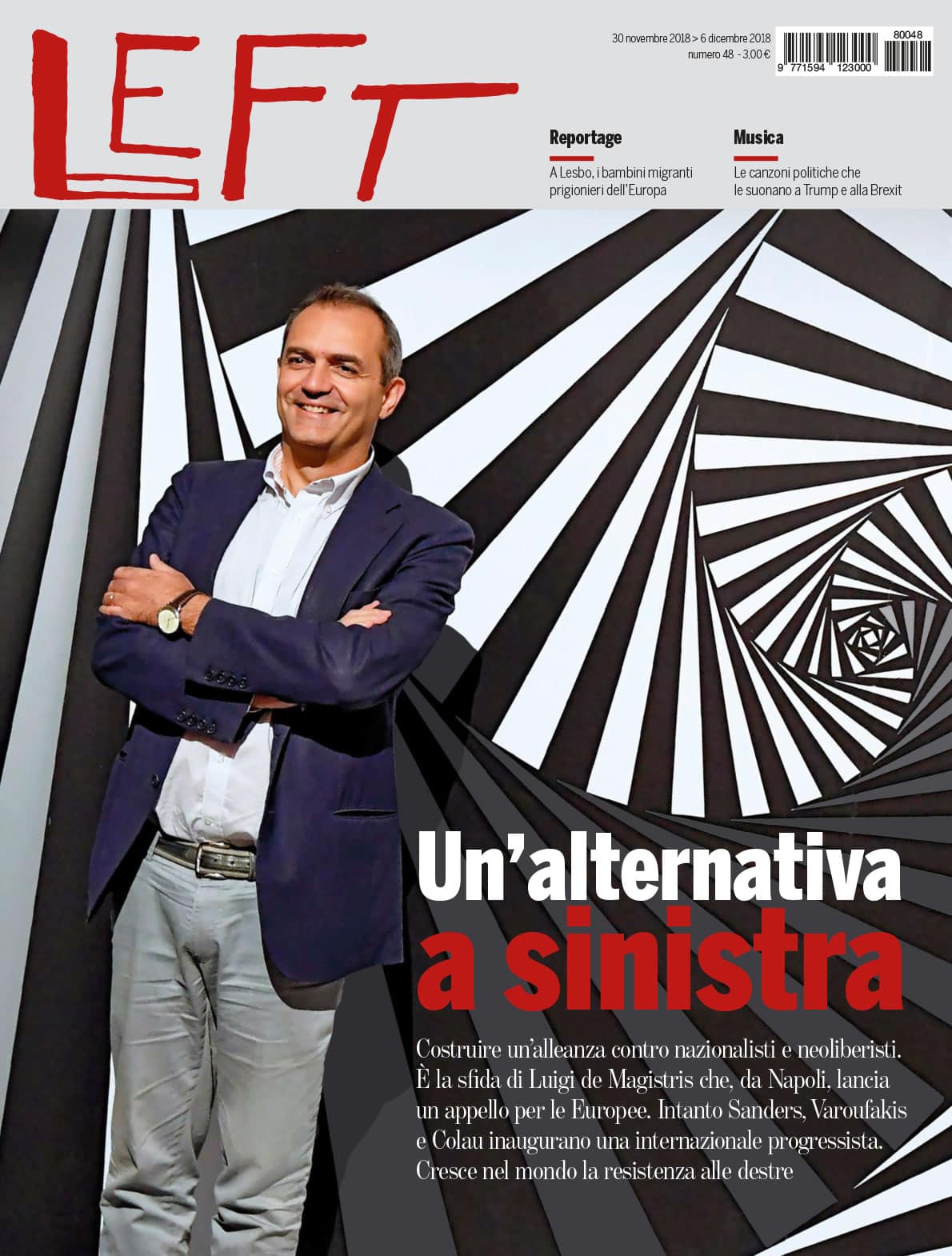Ameen is sixteen, his gaze is lost on the horizon, his left forearm is full of scars, straight lines one after the other. I ask him: “What happened?” He blushes in embarrassment and caresses his arm as if to conceal it. He makes a half smile that squeezes his sharpened eyes, then simply answers: “I cut myself. The pain and the fatigue was too much and the only thing I wanted was to find a way to stop it. Everybody does this here, they try to put an end to it”.
I have heard this answer other times in overcrowded prisons where life is spent for 22 hours a day in a cell and where time never ends. But I meet Ameen in a very different context: the island of Lesbos is one of the most beautiful in the world, a paradise that was turned into a prison in 2016 due to the agreements to halt the migratory flows between Europe and Turkey.
Ameen is only sixteen and comes from Syria, like many of the approximately nine thousand people trapped in the prison of Lesbos. He has been here for one year but he still hasn’t had the first interview in the asylum application process.
In 2015 the sea between Turkey and the Greek islands was crossed by over one million refugees seeking asylum in Europe. Then, in March 2016, Europe closed that route and signed an agreement with Turkey for three billion euros, which quickly became six billion, to “contain migratory flows”.
But the flow, in fact, has never stopped. Even today about two hundred people a day continue to land on the islands of Lesbos and Chios. Yet nobody talks about it, just occasionally when someone drowns. Ameen lives in the Moria camp, which has room only for three thousand. The others are camped on the hill in front. Everywhere is full of children and three thousand of them are younger than 18 years old.
Mohaned and Yasmine arrived from Iraq only a month ago. They found no place in the centre and settled in the spontaneously formed encampment on the hill called Olive Grove. They built a hut where they, with a smile, invite us to come in. Yasmine says she was pregnant when she arrived. “Our little girl was born here, twenty days ago”, she tells me as she cradles her baby. “She was born in this tent with a roof made of blankets and a cardboard floor resting on wooden boards, to protect us from the cold, but when it rains it flooded everything. And it’s full of insects and animals.”
Mohaned, with her oldest six-year child in her arms, says: “She’s shocked, she can’t talk, she’s always crying, she’s nervous. She sleeps badly, she always has bad dreams, she’s always hungry, there’s never enough to eat here. She asks me every day to leave, she wants to go home. I am forced to lie to reassure her, I tell her tomorrow, we will go away tomorrow. ”
Leaving Moria is very difficult and transfers to Athens are very slow.
The tent of Yasmine and her family is at the centre of a camp of improvised tents full of women, children and men who hoped to find an opportunity but instead are forced to survive in a climate of perpetual waiting: waiting to leave, waiting for a doctor, waiting to eat.
Food distribution in the Moria camp starts at eight o’clock in the morning. The women come wrapped in blankets beginning at 4.00 a.m., some sleep here because the food is never enough and those who arrive late do not eat. When the food van arrives they all stand up and prepare to enter in an iron cage that should serve to regulate the line, where they remain piled up on each other for hours awaiting food.
The line for the meal is the symbolic image of the refugees on the island of Lesbos. They experience a never-ending wait, they have to fight for everything. The camp of Moria is surrounded by barbed wire. There is a shower for every 84 people, a bathroom for every 72.
A guy living in one of the camp’s containers says: “It’s all disgusting here, you can see it with your own eyes”. He shares a small dirty room with seven other people with a curtain instead of a door. “I fled from Syria, I come from Raqqa and I have been here for ten months. I did the first asylum application interview only now and I do not know how long it will take.”
MSF has moved the clinic out of the fenced area to protest against the agreements signed by Europe and Turkey to close the Balkan route. At the end of August, MSF launched an alarm on the desperate conditions of the “prisoners of the island” where children also have started thinking about suicide.
Alessandro Barberio, MSF’s psychiatrist, wrote a public letter denouncing how “the appalling living conditions, the exposure to continuous violence, the lack of freedom, the serious deterioration of physical and mental health and the pressures on the inhabitants of the island, make Lesbos looks like the old madhouses, which no longer exist in most of Europe, and date back to the mid-twentieth century.
The gate of MSF’s pediatric hospital opens continuously. Idoia Moreno is the coordinator: “The problem is that as we are the only ones to take children and we too are collapsing. They live in totally inhumane conditions and they all get sick with diseases directly related to the conditions in which they are forced to live: respiratory problems, skin diseases, diarrhea, due to the dirt of the field and to the poor quality of the food. We treat them but then they return to this inhumane situation and then come back to us the next day even more sick».
We meet Timira in the tent where dozens of children await their turn to be visited. She is with her three-year-old son to treat a nasty case of bronchitis. She says: “When we escaped from Somalia we didn’t know what would happen. All we can do is wait and see what’s going on.” Her daughter Zainab is nine years old, she has very clear ideas and holds her little brother. Tamira says: “We didn’t expect it to be so. We didn’t think we’d be in a tent in these terrible conditions. The fights, the beating are the worst, the worst time is when the food is distributed. We all worry while we are in line that when it is our turn there will be nothing left to eat”.
Idoia Moreno comes from a long mission in Congo and has been in many conflict areas with MSF but she says “I’ve never seen such inhumane conditions.” People are committing suicide for the total lack of hope in the future. She explains that “the system is inhumane, the asylum system does not work at all. Refugees arriving now will have an appointment for their first asylum interview in November 2019, in more than a year. These families come from brutal and horrible wars, but they all say that this is worse than what they are running from. To give you an idea, last week I had to suture the arm of an unaccompanied sixteen-years-old guy. He cut his veins. And even an 18-year-old girl who tried to kill herself with her mom. This despair and the lack of a future is leading teenagers to try to kill themselves.”
Ameen hasn’t heard from her mother in months. Last time he spoke to her she learned of her father’s death, who was killed by a bomb as he was coming back home.
“I am Syrian, from Der Ezor. My family decided to let me go because they didn’t want me to be enlisted to fight. We had hoped to arrive in Europe to find safety and peace. I’ve been here a whole year now. The only thing I can do is think and think again, 24 hours on 24. I can’t sleep at night, I am awake until the morning and when I sleep I always have nightmares of Syria. I dream they want to kill me or that someone is chasing me. Happiness for me would be to get out of the Moria camp and call my mother telling her that I am fine. ”
Translated by Carla Gentili
Valerio Cataldi is President of the association Carta di Roma and TG2 special envoy.
His documentary “Prisoners on the island” was projected during #MakeNews on December 4 in Florence.






